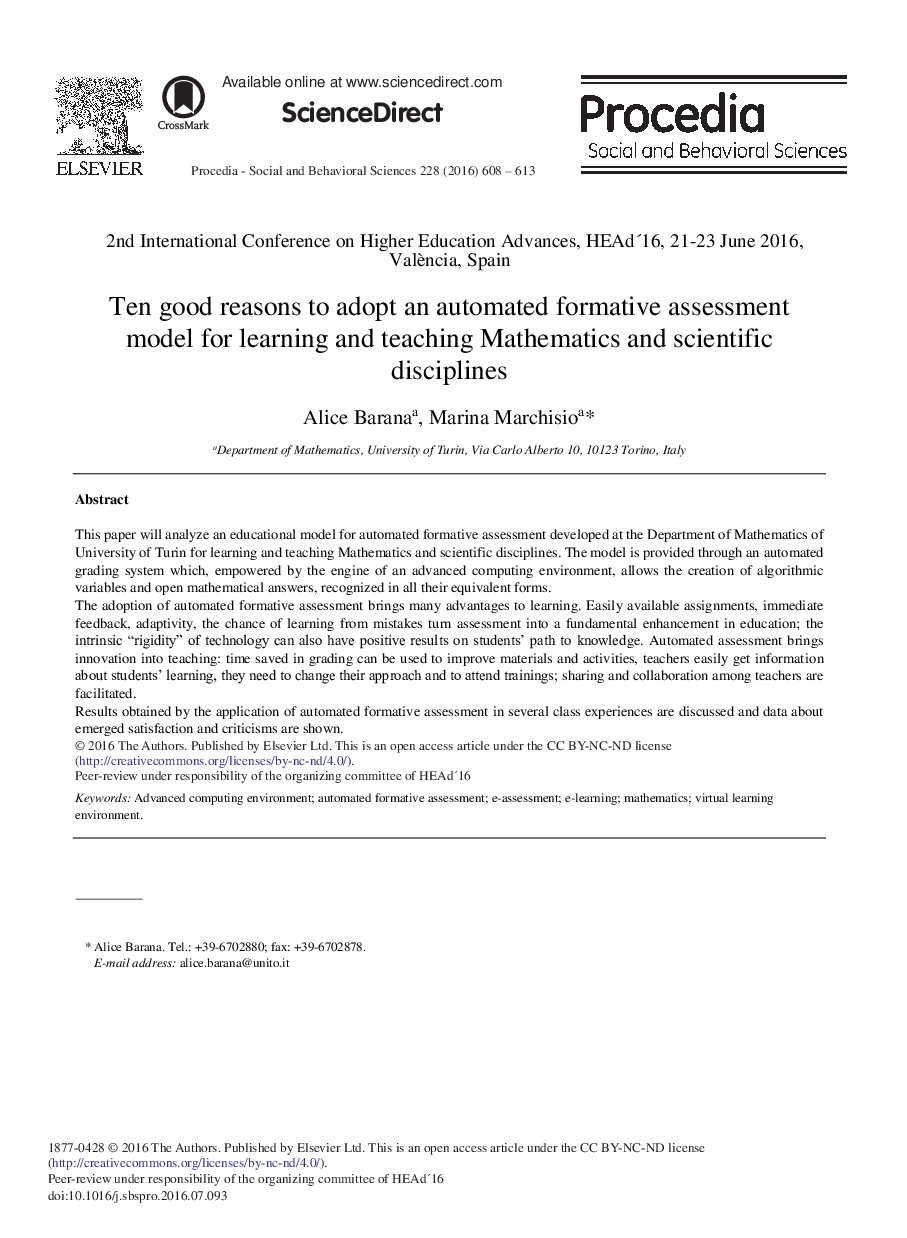| Article ID | Journal | Published Year | Pages | File Type |
|---|---|---|---|---|
| 1107203 | Procedia - Social and Behavioral Sciences | 2016 | 6 Pages |
This paper will analyze an educational model for automated formative assessment developed at the Department of Mathematics of University of Turin for learning and teaching Mathematics and scientific disciplines. The model is provided through an automated grading system which, empowered by the engine of an advanced computing environment, allows the creation of algorithmic variables and open mathematical answers, recognized in all their equivalent forms.The adoption of automated formative assessment brings many advantages to learning. Easily available assignments, immediate feedback, adaptivity, the chance of learning from mistakes turn assessment into a fundamental enhancement in education; the intrinsic “rigidity” of technology can also have positive results on students’ path to knowledge. Automated assessment brings innovation into teaching: time saved in grading can be used to improve materials and activities, teachers easily get information about students’ learning, they need to change their approach and to attend trainings; sharing and collaboration among teachers are facilitated.Results obtained by the application of automated formative assessment in several class experiences are discussed and data about emerged satisfaction and criticisms are shown.
